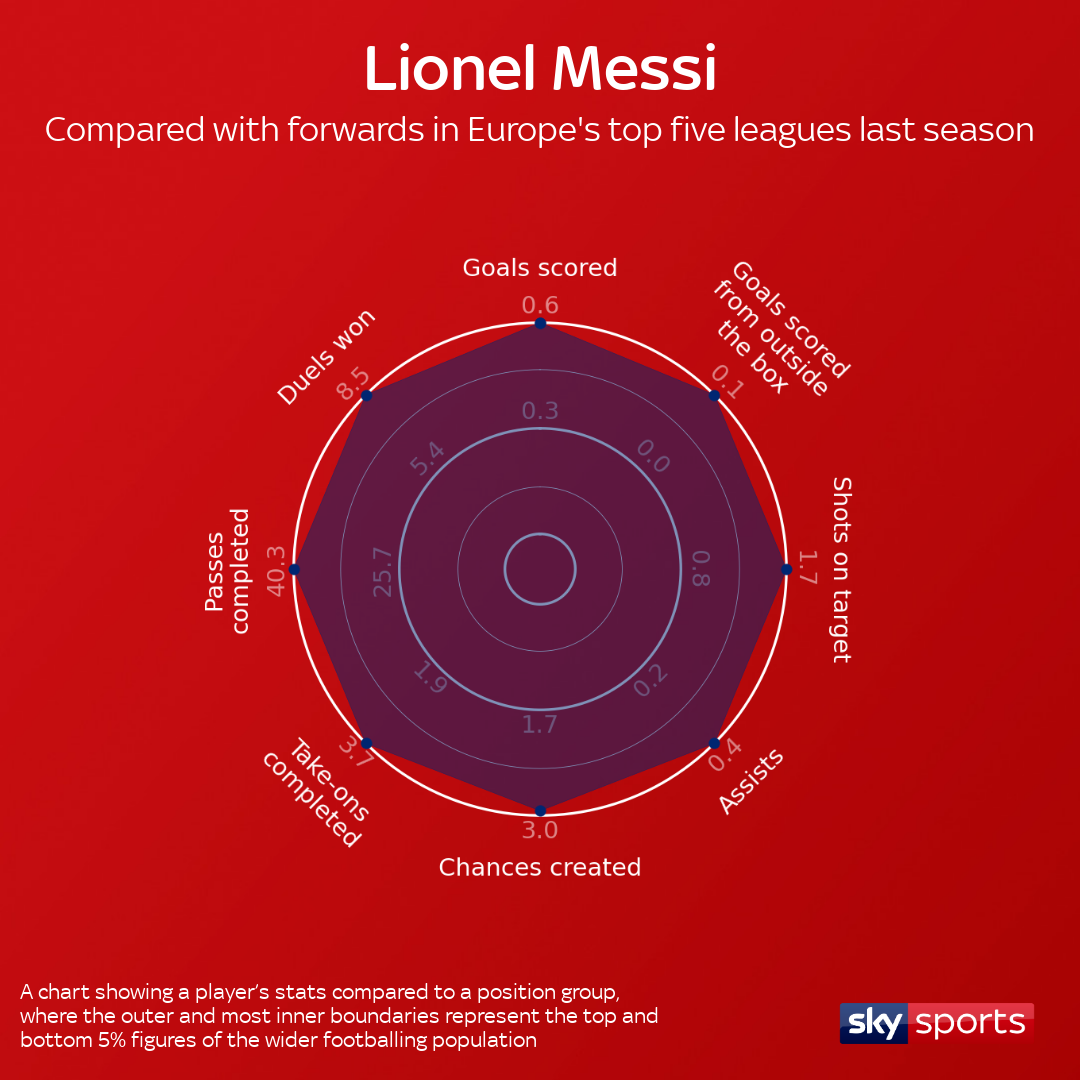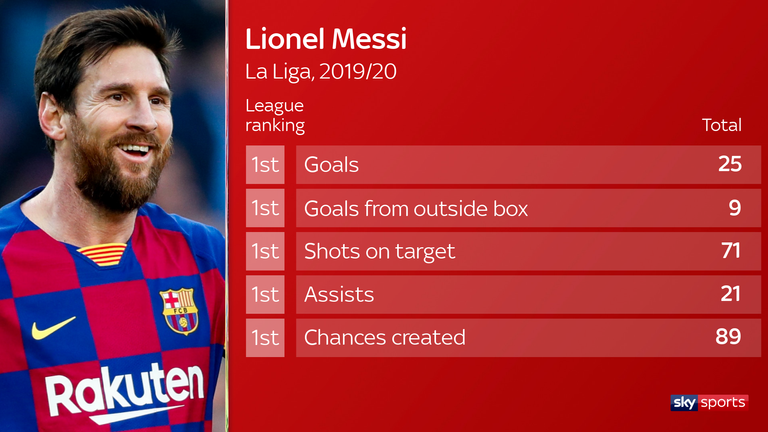Lionel Messi has scored 704 goals for Barcelona and Argentina
Lionel Messi joined Cristiano Ronaldo in prestigious 700-club two months ago

Wednesday 26 August 2020 14:35, UK
Lionel Messi wants to leave Barcelona after 16 trophy-laden seasons at the club - but is he still the world's best player?
The Argentina forward looked likely to play out his entire career at Barcelona but opened the door for a transfer on Tuesday evening.
Alongside rival Cristiano Ronaldo, Messi has been hailed as the greatest player of the modern generation - and perhaps ever.
Messi won the FIFA Best Player award in September last year before proceeding to top the La Liga charts across a raft of attacking stats in customary style and claiming the Golden Boot with 25 goals.
Along the way, Messi joined Ronaldo as the only active players to belong to the prestigious 700 goals club, which has been achieved by just five other players throughout history: Gerd Muller, Ferenc Puskas, Pele, Romario and Josef Bican.
His legendary status is undeniable. But does he remain, right now, at the peak of his powers? It's a question any potential suitors will have to weigh up as they consider a huge financial package to take him from Barcelona.
This campaign marked a significant moment: it was Messi's first season without a trophy in 12 years, compounded by crashing out of the Champions League with a humiliating 8-2 defeat to Bayern Munich in the quarter-finals.
His goals dropped off this term, but the suspension of international competitions - coupled with injuries at the start of this campaign - have curtailed his tally.
Widely regarded as the greatest player on Earth, does the Argentine still hold that mantle - even at 33 years of age?
The graphic below answers that question profoundly. Messi ranked either top or among the top five per cent of forwards across Europe's top leagues last season - and that's been a seasonal trend for more than a decade.

When comparing the elite group of forwards in Europe, Robert Lewandowski, Kylian Mbappe and Cristiano Ronaldo outgunned Messi in terms of goal ratios - but the Argentine led the pack for assists and creating chances.
Conclusion
Indeed, all of Messi's rivals above featured in domestic title-winning teams, while Barcelona suffered a tumultuous, barren campaign.
Factoring that, and his stellar numbers for conjuring opportunities for team-mates from a wide forward position, Lionel Messi is still, surely, the greatest player on Earth.
Analysis: Messi's goals in numbers
Messi graduated from Barcelona B and made his debut for the senior side in 2004 at the age of 17, making his international debut for Argentina the following year.
He won his first Ballon d'Or in 2009 - the first of four consecutive awards - and has since extended that tally to a record-breaking six.
Broken down, Messi has scored 634 goals for Barcelona and 70 for Argentina. The 2011/12 season was his most prolific for club and country, netting an astonishing 82 goals.
Incredibly, until last season, Messi had scored in excess of 40 goals per season since his first Ballon d'Or.
The majority of his goals, 444 to be precise, have been scored during 16 years in La Liga - although he has also netted 115 on Europe's elite stage, en route to four Champions League titles during his spell at the club.
Messi is a threat from any area, bursting the back of net from outside the box on 121 occasions - with 53 of those from direct free-kicks, while 586 of his 704 goals were converted with his favoured left foot.
The Argentine's greatest haul in a single game is five goals against Bayer Leverkusen in March 2012, scoring four in a game six times and he has registered 54 hat-tricks to date.
His favourite opponent over the years has been Sevilla, against whom he has struck 37 times, followed by Atletico Madrid (32), Valencia (28) and arch rivals Real Madrid (26).
You can use the interactive table below to search all of Messi's 704 goals, where Arsenal fans will be reminded of his four-goal masterclass which ended their hopes of progressing to the Champions League semi-finals in 2010.
Transfer Centre LIVE!
All the latest news, analysis and rumours from the window in one place.
The summer transfer window will run for 10 weeks from July 27 and close at 11pm on October 5.
A domestic-only window for trades between the Premier League and EFL then runs from October 5 and closes on Friday October 16 at 5pm. Follow all the news and analysis on Sky Sports News and across Sky Sports' digital platforms, including with our dedicated Transfer Centre blog.





